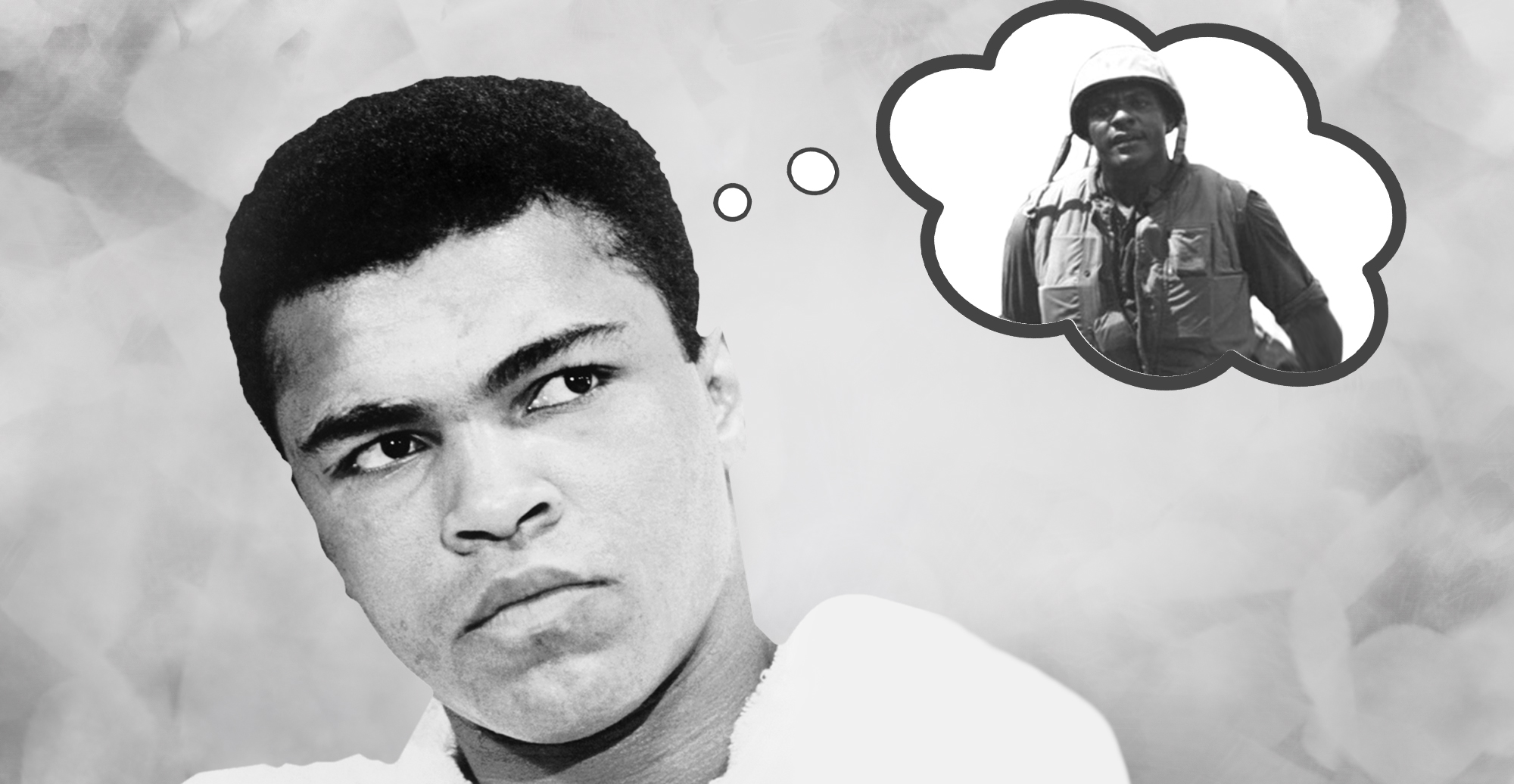Semper Fidelis! United States Marines know best what it means to be “Always Faithful” and to put service to country above anything else. Only those who got the true meaning of this motto understood why “Big Percy” Price refused to leave the Marines to become a world famous boxer.
The story of Staff Sergeant Percy J. Price comes down to his decision not to become a rich and famous sportsman. Both confusing and perfectly clear at the same time, it is a story of a man who did love boxing but who lived to serve his country. The sense of pride of belonging to the Marines was a foundation for the decisions he made in his life.
Proud to be a Marine
Percy was just another Marine. One of many. If he wasn’t 6’3” tall and 209 pounds heavy, one would barely notice him. He was calm, never overexcited, even in battle, and was always there to serve, no questions asked.
In a period of his life when he had an opportunity to evade it, he went Vietnam and served two tours. Not even the horrors of the Vietnam War changed his mind. He remained in service for as long as he was able and he never regretted dedicating his entire life to his country.
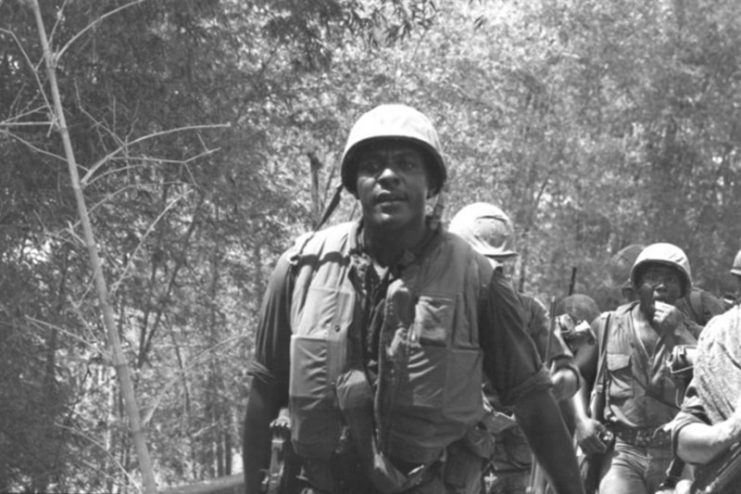
Coming from Philadelphia, Percy joined the Marines in 1955 when he was only 18. With his height and weight and fists large as shovels, he was perfect to be a heavyweight boxer, but he chose to serve instead. Being a Marine was his dream come true, and the fact that it allowed him to fight at the same time was just a big plus.
With his boxing abilities it didn’t last long until he joined the Marines’ Boxing Team and started knocking out other Marines who wanted to try their boxing skills. Since he was so good at it, when the 1960 Olympics boxing trials started Percy was there to try his luck.
1960 Olympics trials
At the time it was nothing unusual to see a military man to participate in sports competitions, even at Olympic Games. It was the time when most of sportsmen were either amateurs or semi-professionals, while some of them were still students.
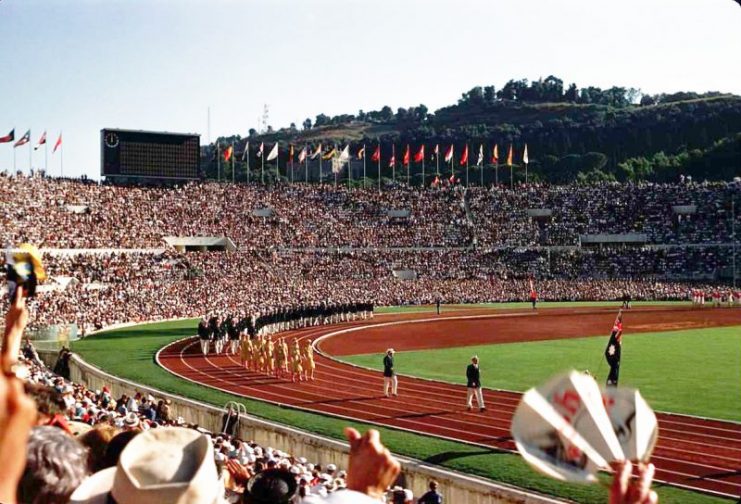
Even though he was the top of the Marines’ heavyweight, Percy was not considered as favorite for the National Olympics Team. To reach Rome and the Olympic Games, he had to fight with some of the best young boxers in the country.
The first qualification matches were smooth sailing for Percy. In the semifinals, on the other hand, he faced Archie Milton, a three time NCAA heavyweight champion and the absolute dominator in his category. However, it was one thing to fight college boys and completely another to fight a Marine. Percy Price ran over Archie Milton in a match that ended with Percy’s right hand knockout and Milton down on the floor.
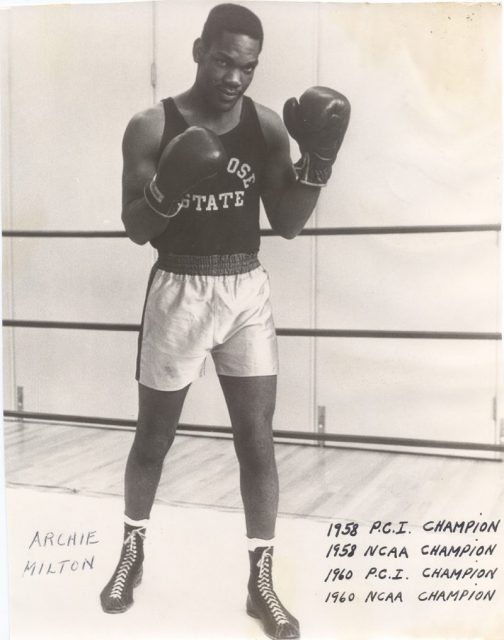
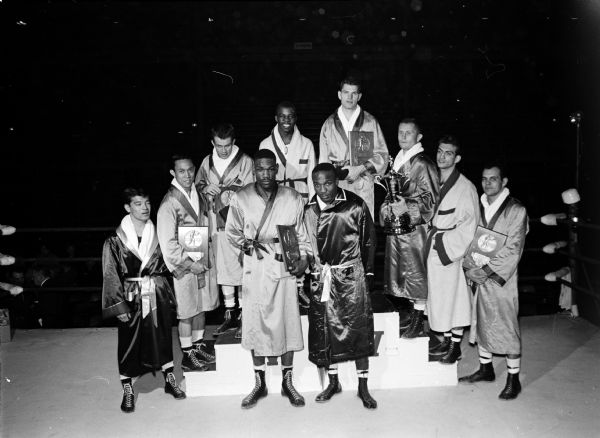
Cassius vs. Marine Giant
After defeating Archie Milton, Percy had just one final match to reach Rome. That final match proved to be the highlight of his boxing career, for he fought none other than young Cassius Clay, the rising talent of American boxing.
There they were: on one side young and fearless Cassius Clay and on another, Marine private Percy Price whose hands were so huge that he needed special gloves. Clay was punching fast, but Percy punched hard and he did it with both of his hands equally. Cassius managed to avoid Archie Milton’s fate of being knocked down, but he surely got the beating of his life.
It was a decision win for Percy Price and a ticket to the Rome Olympics. After suffering a defeat in a division that he would dominate in years to come, Cassius Clay had to switch to the light-heavyweight division to secure his place in Rome.
Once there, in the Olympic Tournament things were completely different. Cassius Clay became the star by winning a gold medal, while Percy Price had to come back home without even a bronze. He was stopped in the quarter-finals by Josef Nemec from Czechoslovakia.
As soon as he finished his Olympic Games adventure, Percy returned to his duty in the Marines. The way he fought in trial tournaments and during the Olympics caught the attention of several boxing managers.
Even though he was an amateur, Percy fought in the style of a true professional. He thus received a number of proposals to turn pro and further develop his boxing skills, but he refused them all. For Percy, boxing was just a sport, while the Marines were his life.
From Rome to Vietnam
The 1960 Rome Olympics were a turning point for both Cassius Clay and Percy Price. Afterward, their lives went in completely opposite directions.
For Cassius, Rome was just a first step in becoming one of the best boxers in the history of the sport. After converting to Islam and changing his name to Muhammad Ali, he became a strong opponent of white domination in the United States and especially of the Vietnam War. Until Ali’s 1971 match with Joe Frazier, Percy Price was the only man who defeated him.
On the other hand, after the Olympics, Percy continued his career in the Marines. As previously mentioned, he served two tours of duty in Vietnam.
Even though he had spent most of his time in Marines as a boxer, which reduced his warfighting skills, it didn’t prevent him from going into combat. As a platoon leader Percy saw as much combat as any other serviceman. He successfully led his men in Operation Union 1 in The Que Son Valley and proved to be a fine NCO.
Percy remained in the Marines until 1976, when he retired at the age of 40. He continued to fight on a military level, winning 3 All-Marine Heavyweight Championships, 2 Inter-Service Titles, and a World Military Championship in 1962.
Despite all their differences and the fact that their lives went separate ways, Percy Price remained in contact with his Olympic Games teammate Muhammad Ali.
